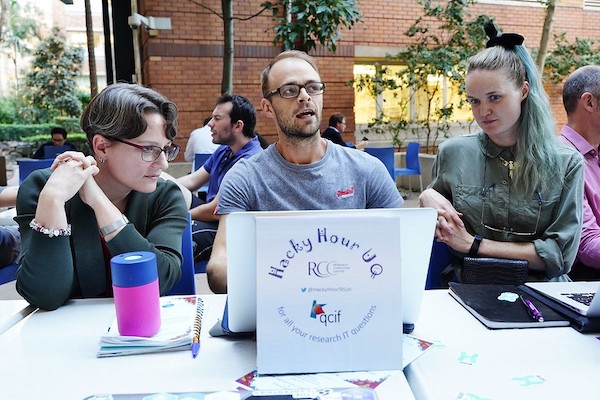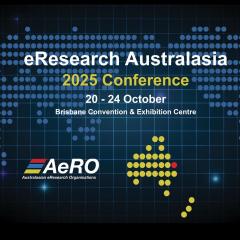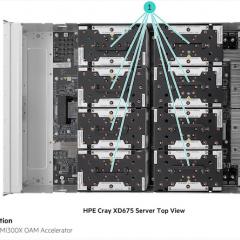
Mathematical modelling inspired by social media is identifying the significant impacts of warming seas on the world’s fisheries.
University of Queensland School of Veterinary Science researcher Dr Nicholas (Nick) Clark and colleagues from the University of Otago and James Cook University (JCU) have assembled a holistic picture of climate change’s impacts on fish stocks in the Mediterranean Sea.
“We found that warming seas – particularly in winter – have widespread effects on fish biodiversity,” said Nick.
“If fish communities are more strongly regulated by winter temperatures as our model suggests, this means that fish diversity may change more quickly than we previously thought.”
The research has been published recently in Nature Climate Change and included contributions from JCU’s Dr James Kerry and Otago University’s Associate Professor Ceridwen Fraser.
Nick is using RCC’s all-rounder high-performance computer Tinaroo to run the mathematical models for his work.
“My use of Tinaroo has allowed me to work on other aspects of my research while analyses are churning away,” he said.
“At the same time, I have been able to build models that would not be possible on my personal laptop or desktop computer thanks to the [Tinaroo] platform’s large memory availability and the simplicity of setting up multi-core analyses.
“This has saved me time and opened new possibilities for hypothesis testing. For example, I previously would have been forced to limit my models for this project to a handful of fish species, making large community predictions impossible. But with Tinaroo, I was not limited by model size or even by model complexity and could explore how entire communities respond to sea temperature changes.”
So far, the graphical models Nick has developed on Tinaroo have proven to be very flexible, leading to five other research papers that explore different aspects of multivariate ‘community’ modelling.
“Usually, when modelling ecosystems to understand how nature is changing, we build models that only focus on the effects of the environment,” said Nick.
“But it’s just not accurate enough. Newer models – commonly used in social media to document people's social interactions – offer an exciting way to address this gap in scientific knowledge.
“These innovative network models give us a more accurate picture of reality by incorporating biology, allowing us to ask how one species responds to both environmental change and to the presence of other species, including humans.”
The research team used this technique to analyse fish populations in the Mediterranean Sea, a fisheries-based biodiversity hotspot with its future under threat from rapidly warming seas.
“Experts from fisheries, ecology and the geographical sciences have compiled decades of research to describe the geographical ranges for more than 600 Mediterranean fish species,” Nick said.
“We put this information, along with data from the Intergovernmental Panel on Climate Change’s sophisticated climate models into our network model.”
Nick has relied on HPC Tinaroo for downloading large predictor data sets, data manipulation and multi-core computations.
“Tinaroo has made it simple for me to access my data from any computer, maintain version control of software packages (I primarily use R and JAGS for my analyses) and schedule jobs in advance.”
Once granted Tinaroo access, Nick undertook one of RCC’s monthly ‘Introduction to HPC’ workshops.
“This was critical for me as I had no experience with PBS systems or bash scripting and so I would not have known where to start. I would highly recommend the training to anyone thinking of using RCC platforms as it is very useful and a nice way to meet the dedicated [RCC] staff.”
Any further issues Nick had with Tinaroo, the RCC Support Desk was ready to assist.
“RCC staff have helped tremendously regardless of the questions I have asked and have always gone the extra mile to make suggestions for how I can improve my workflows (for instance through the use of personalised containers),” said Nick.
He also attended Hacky Hour UQ, an informal, weekly meetup in which IT experts (including RCC staff) help researchers with research-related technical issues.
“For both myself and my students, Hacky Hour UQ has been a real help for improving workflows and realising the possibilities available on RCC platforms. Plus, they are a great way to meet like-minded people, so I highly recommend them.”
Nick plans to keep refining his models so they are increasingly adaptable to different research questions. This will include addressing hypotheses in genomics and transcriptomics, disease ecology and microbial ecology.
“I will continue to rely heavily on Tinaroo and other RCC platforms as much as possible as I expand my work,” he said.
He and his fellow researchers hope the work that led to their Nature paper will emphasise the need to understand and address climate change.
“Catches for many bottom-dwelling and open-ocean fishery species in the Mediterranean Sea have been steadily declining, so any changes to fish communities may have widespread economic impacts.
“For the sake of marine ecosystems and the people whose livelihoods depend on them, we need to gain a better understanding of how ocean warming will influence both species and economies,” said Nick.
For his research, Nick received funding through UQ’s Early Career Research Grant Scheme and from the National Geographic Society to support the development of his models and hypotheses.
This article is partly based on one first published by UQ News on 14 July 2020.



